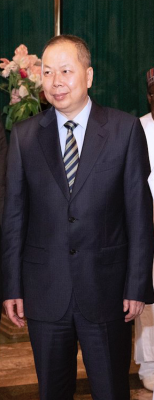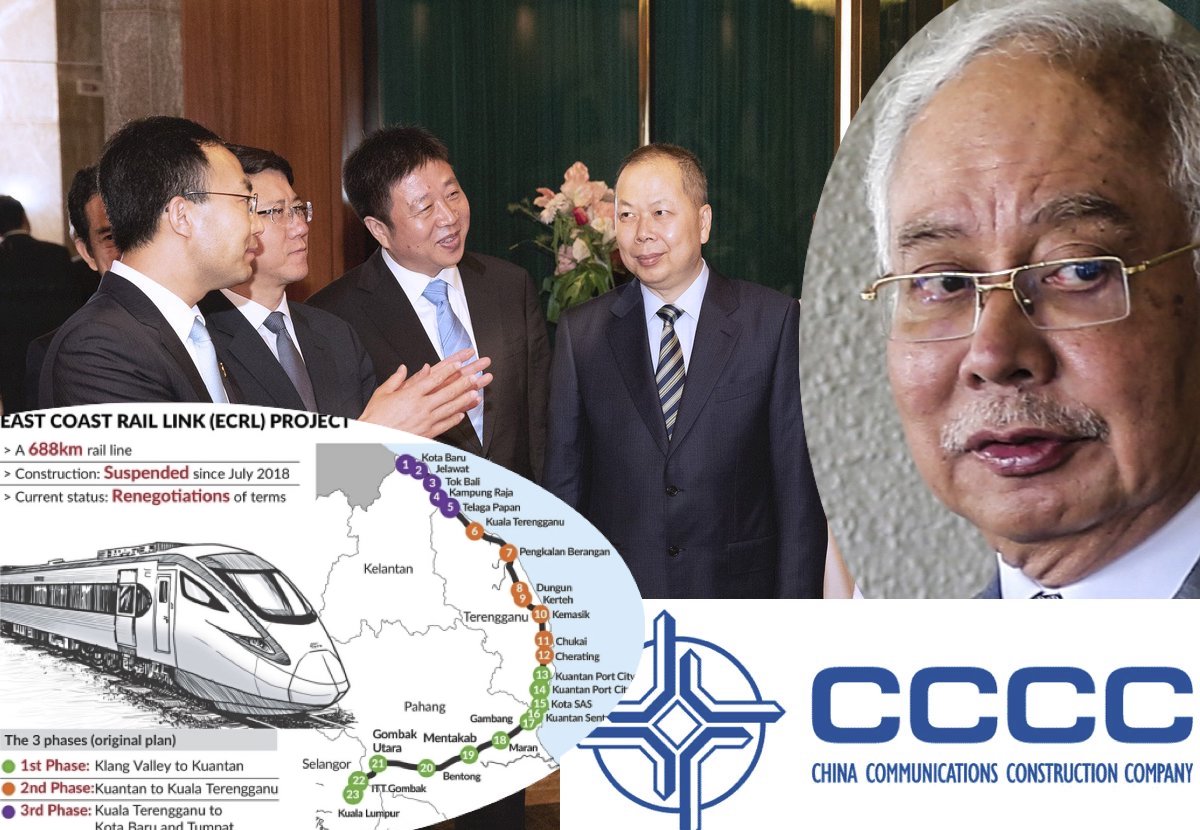
An extensive report in the Asia Sentinel has unveiled the background to the latest ‘Corporate Suicide’ in China.
The victim, who is believed to have thrown himself off a tall building in Beijing on August 18th, was 58 year old Chen Fenjian, President of China Communications Construction Company (CCCC) between April 2014 to July 2018 and then of the China Railway Construction Corporation (CRCC) until his demise.
It was during Chen Fenjian’s tenure at the top of CCCC that a string of corrupt deals with Malaysia were sealed, involving massive kickbacks that were made to Najib Razak’s Ministry of Finance (MOF) in return for the vastly inflated East Coast Railway Project.
Sarawak Report has recently exposed how those multi-billion ringgit kickbacks were funnelled by CCCC subsidiary companies based in Hong Kong through a royal contact in Kuwait and then back to the MOF, largely to pay off debts secretly incurred by 1MDB in Abu Dhabi.
The entire scheme had been orchestrated by Jho Low who was acting as Najib’s 1MDB fixer at the time and who has been in hiding, mainly in China, since 2015.
260 Deaths Linked To Anti-Corruption Drive In China
Asia Sentinel points out that Chen Fenjian’s death marks the 260th senior corporate suicide or unnatural death since President Xi launched his ‘anti-corruption campaign’ in 2012, also that just one day before his death an investigative team from the Chinese government body overseeing state owned enterprises completed an inspection of CRCC:
The timing has aroused speculation on whether Chen’s apparent suicide might be linked to corruption ….. several chairmen of Chinese state-owned companies and state-owned banks have taken their lives to evade punishment and avoid revealing information on co-conspirators to Chinese investigators. 260 senior Chinese officials and company executives have died unnaturally through means such as falling off buildings, hanging, poisoning, gunshots or drowning [Asia Sentinel]
The Chinese website for CRCC has apparently been suspended since his death a fortnight ago. However, both CRCC and CCCC have been major players in China’s increasingly notorious ‘Silk Belt & Road’ initiative that has rolled out massive infrastructure across numerous developing countries as part of China’s expansionist ambitions.
Time and again such projects have ended up embroiling their host countries in debilitating debt to China thanks largely to corrupt deals entered into by local leaders, such as Najib’s own ECRL deal with CCCC which had inflated costs by 100% in order to conceal his thefts from 1MDB.
Moreover, CCCC has in the past days faced further sanctions by the US Commerce Department (along with 24 other Chinese companies) for helping the Chinese military build artificial islands and place military installations on these islands in the South China Sea. In a statement issued on August 26th a State Department official named CCCC, which was banned by the World Bank for corrupt practices back in 2009, as a “bad actor”:
“In doing this, we have various aims, including, of course, to impose costs on bad actors and to encourage all sorts of parties and institutions and governments around the world to assess risk and reconsider business deals with the sort of predatory Chinese state-own0ed enterprises that we’ve identified here, to include China Communications Construction Company and its subsidiaries that have been so central to the militarization and coercion in the South China Sea.
“CCCC, which led on the dredging, is also one of the leading contractors used by Beijing in its global “One Belt One Road” strategy. The company and its subsidiaries have engaged in corruption, predatory financing, environmental destruction, and other abuses in countries all around the world” [Asia Sentinel]
Under Najib’s premiership Malaysia, which has a pressing national concern over this major expansionism on its very doorstep, nevertheless withdrew from issuing a UN condemnation of China’s actions over the Spratly Islands and numerous intrusions into Malaysia’s waters.
Instead, Najib plunged the country into a series of massive untendered construction contracts with CCCC and related Chinese state companies, which the PH government was subsequently forced to re-negotiate as best it could. The purpose appears to have been to corruptly steal from his own country under the guise of Chinese led ‘development’.
The merits of the ECRL project (which was driven through by the now deceased Chen Fenjian) have remained hotly contested. Meanwhile, the Ministry of Finance has been fined for the corrupt and negligent way it managed two parallel pipeline projects, paying almost entirely upfront in order that CCCC could secretly channel money back to pay interest on billions stolen from 1MDB.
Chen Fenjian and Najib presided over the lot of it. However, Najib continues to appeal his convictions and to defend his further corruption trials, claiming that he is merely the victim of ‘politically motivated charges’.
Read the full story in Asia Sentinel

